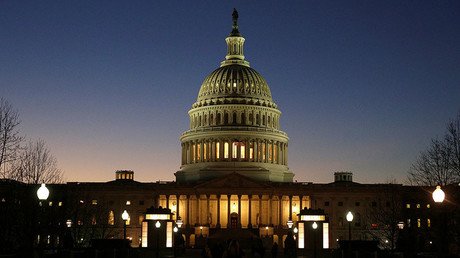California bill to ban fake news pulled amid free speech concerns

A California state lawmaker pulled his proposed legislation that would have made it illegal to publish “false or deceptive statements” on elections after critics said it would be “disastrous for free speech.”
The first hearing for Assembly Bill 1104, “The California Political Cyberfraud Abatement Act,” was planned for Tuesday, but was canceled at the 11th hour at the request of the author, California Assemblyman Ed Chau (D-Monterey Park).
Under the proposed legislation, it would be unlawful to knowingly and willingly publish or circulate on the Internet a “false or deceptive statement designed to influence the vote” on either a ballot measure or political candidate.
In his analysis of the bill, Chau says the proposal would expand The Golden State’s political cyberfraud law to “provide protections to candidate campaigns in addition to the current law protections for ballot measures.”
“This bill is an important step forward in the fight against 'fake news' and deceptive campaign tactics,” Chau, who heads the California Privacy and Consumer Protection Committee, said.
The Electronic Frontier Foundation (EFF), a digital-rights advocacy group, wrote a critical review of the bill, saying it was “so obviously unconstitutional, we had to double check that it was real.”
The EFF argued the bill would violate free speech rights, making it illegal to “be wrong on the internet.” Anyone who made the “slightest hint of hyperbole, exaggeration, poetic license, or common error” on a candidate or ballot measure would be violating the law, according to the civil liberties advocate.
They also note that the bill does not leave room for satire or parody, meaning The Onion would be considered illegal under the bill. Even quoting or retweeting an incorrect statement would be illegal.
“At a time when political leaders are promoting ‘alternative facts’ and branding unflattering reporting as ‘fake news,’ we don’t think it’s a good idea to give the government more power to punish speech,” said Dave Maas, an investigative researcher for the EFF.













